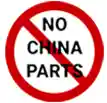The aviation industry has long been associated with luxury and convenience, particularly in the realm of business jet aviation. However, with growing concerns about climate change and environmental degradation, there is a pressing need to assess and improve the sustainability of business jet operations. This blog explores various facets of environmental sustainability in business jet aviation, highlighting steps that can be taken to reduce the ecological footprint of this industry.
Environmental sustainability in aviation is a multifaceted issue, and while business jets are known for their efficiency and flexibility, they still contribute significantly to carbon emissions. The first step toward sustainability is understanding the extent of this impact, as business jets, though smaller than commercial airliners, often have higher emissions per passenger mile due to their smaller passenger capacity. This high per-passenger emission rate makes it crucial to find ways to mitigate their environmental impact, which requires a comprehensive approach involving advancements in fuel technology, aircraft design, and operational efficiency. By addressing these areas, the industry can significantly reduce its ecological footprint while maintaining the benefits of business jet aviation.
One of the primary ways to improve sustainability in business jet aviation is through advancements in fuel technology, and the industry has been exploring alternative fuels such as sustainable aviation fuel (SAF), which is produced from renewable resources like plant oils. SAF has the potential to reduce lifecycle carbon emissions by up to 80% compared to traditional jet fuel, and companies are increasingly investing in its development and adoption. Despite this, widespread use is still limited by availability and cost. Additionally, ongoing research into electric and hybrid propulsion systems promises to reduce the carbon footprint of business jets further in the future.
In addition to fuel innovations, improving the efficiency of aircraft design plays a critical role in sustainability, and modern business jets are being designed with lighter materials and more aerodynamic structures to reduce fuel consumption. The use of composite materials, such as carbon fiber, reduces the weight of the aircraft and enhances performance and durability, while advanced aerodynamic designs, including winglets and improved engine placements, contribute to reduced drag and improved fuel efficiency. These technological advancements demonstrate a significant step forward in reducing the environmental impact of business jet aviation.
Another crucial aspect of sustainability is the operational efficiency of business jets, which includes optimizing flight paths, reducing unnecessary fuel burn, and improving air traffic management. By utilizing advanced navigation systems and real-time data, pilots can choose the most efficient routes to avoid congestion and adverse weather conditions. Operators can also adopt practices such as single-engine taxiing and reduced auxiliary power unit usage to minimize fuel use on the ground.
Sustainability in business jet aviation also extends to ground operations and infrastructure, as the construction and operation of airports and maintenance facilities contribute to overall environmental impact. Green building practices, such as using energy-efficient lighting and heating systems, water conservation measures, and renewable energy sources, can significantly reduce the carbon footprint of these facilities. Additionally, the use of electric ground support equipment and vehicles can minimize emissions and noise pollution at airports.
Corporate responsibility and regulatory frameworks are essential in driving sustainability in business jet aviation, and many companies in the industry are adopting comprehensive sustainability strategies. These plans often include investing in new technologies, offsetting carbon emissions through reforestation projects, and enhancing transparency in reporting environmental performance. Furthermore, regulatory bodies are implementing stricter emissions standards and incentivizing the adoption of sustainable practices through tax benefits and grants.
In conclusion, improving environmental sustainability in business jet aviation is a complex but essential endeavor. If you are in need of business jet products or civil aviation components, look no further than Buy Jet Engine Parts. Across the website, customers will find over 2 billion items that are ready for purchase, our online Request for Quote (RFQ) service making it simple to take the first step. Once our team receives and reviews a completed form, you can expect to secure curated fulfillment options shortly after in response. Keeping this in mind, initiate procurement with us today to see how we can fulfill all your needs with ease!
Posted on July 1, 2024 sophia anderson



“We Proudly Support Intrepid Fallen Heroes Fund that serves United States Military Personal experiencing the Invisible Wounds of War : Traumatic Brain Injury (TBI) and Post Traumatic Stress (PTS). Please visit website (www.fallenheroesfund.org) and help in their valiant effort”.
We Hope that You Will Visit Us Again the Next Time You Need Aircraft Parts and Make Us Your Strategic Purchasing Partner.
Request for Quote